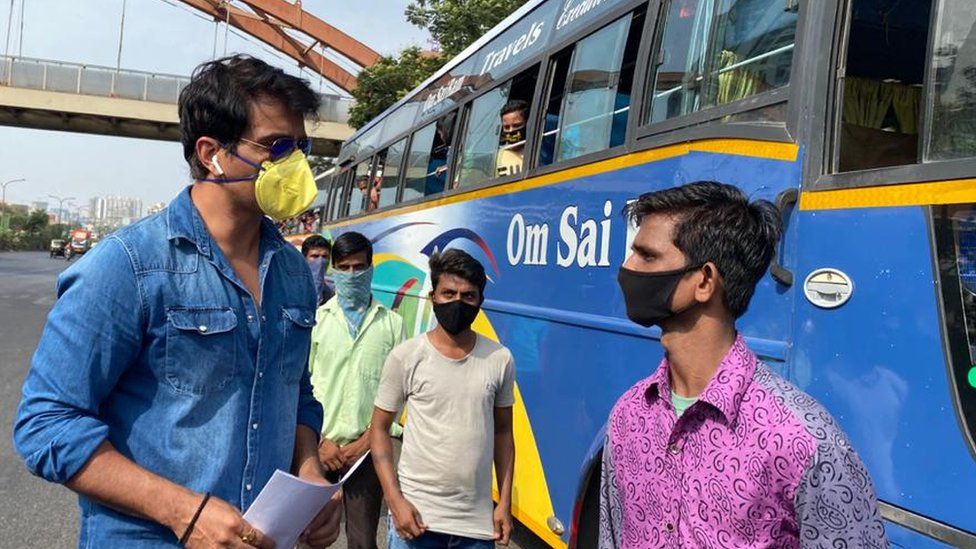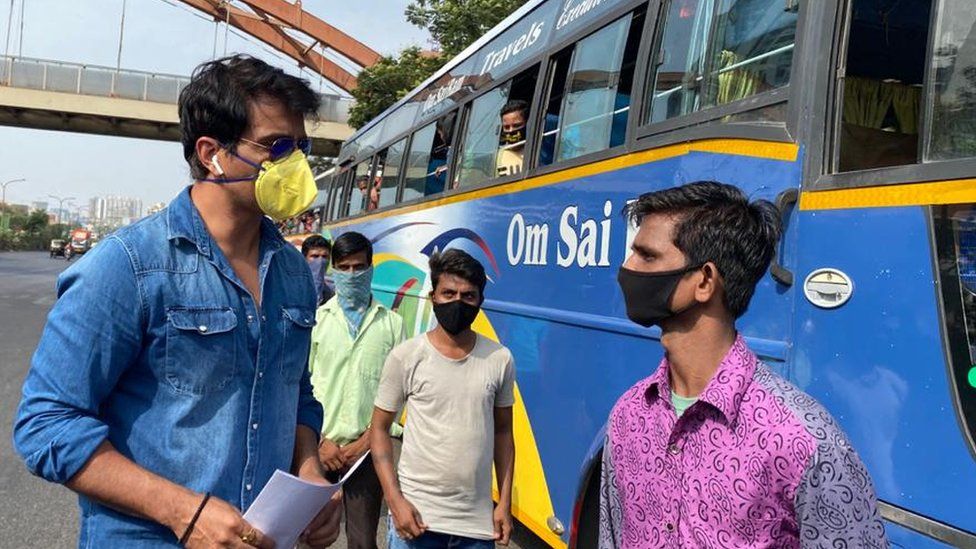Philosophers have long been talking, theorising and thinking about strangers, strangeness in this world. Collectively, we have philosophised on it as well. While the year has recently ended and we are still trying to survive the pandemic, understand loss, accept grief and learn to suspend judgements in human bonds, we thought it would be interesting to talk about the presence and the impact of strangers in our society while we were trying to survive the pandemic.
The media was going all crazy when we saw Sonu Sood coming forward and helping migrants/ workers to reach their hometown. Instances like these, where strangers are coming to help other strangers makes us re-think about the concept of stranger, their role and how it has changed- rather evolved in the pandemic.

During the pandemic, strangers have proved to be just not a harmful vindictive person but a kind comforting friend who hears you out, understands your pain and empathises with you, for example, Aakriti Sachdev from Panchkula started making food packets to be delivered to slum-dwellers, rickshaw pullers and daily wagers without work. Not much has been recorded or written about how collectively we have confided more in strangers during the pandemic. Whether it’s for survival, healing, understanding the obvious, we have confided in them. Quite a few people who have been using dating apps have said how during lockdown not only have they interacted more with strangers than ever, but also observed how the language and the desire of talking to a stranger has evolved.
Also read: Analysis: The Social Inequities That COVID-19 Pandemic Exacerbated
During the pandemic, strangers have proved to be just not a harmful vindictive person but a kind comforting friend who hears you out, understands your pain and empathises with you. Not much has been recorded or written about how collectively we have confided more in strangers during the pandemic.
Students who have a history of staying in hostels were confined to survive this lockdown while doing household chores. During these times, these students have shared their intimacy, opening their wounds to their so-called Instagram friends whom they have never met.
The thinning line between the known and strange
At a time when we have to rely on technology and virtual communication to reach out to even our nearest and dearest ones, the thin line between virtual strangers and our virtual friendships have narrowed even further, often leaving not much space of difference. Some words of comfort or even a funny video from a social media ‘celebrity’ has gained the power to put us at ease, just as an old friend’s hug would.
Some social media ‘influencers’ used the ‘live’ feature on some of the platforms and would randomly chat with people stuck alone at home, during the lockdown. Most recently, Justin Baldoni – the American actor and director – spent a part of his Christmas with strangers online. He played games with them and shared his Christmas cheer with those ‘who needed some extra joy and warmth’. It felt like some old friends spending Christmas together, but in reality, they were only strangers trying to comfort each other.
Also read: How COVID-19 Maginified The Performance Of Toxic Masculinities In My Family

The helping hands of comfort
When the demand of plasma for Covid-19 affected patients was at its all time highest in the country, a trend of sharing the details of possible donors took to the social media platforms. Soon, donor-receiver chains were created between complete strangers–facilitated by strangers and to end up saving so many otherwise ‘stranger’ lives in these trying times. Some times, even the occasional feeling of ‘I am not alone in this’ – that comes to us when we hear similar stories of strangers going through similar things like us- is able to comfort us, like no other.
I have come across this person on Instagram, who, on weekends listens to strangers rant, yes, this being his only motive. He never tries to throw suggestions at those people, but only listens. He listens to strangers talk about their lost job, their failures, their moments of joy and happiness.
Of strange safe spaces
As physical spaces became less accessible, attempts to create more and more safe spaces online grew. These spaces were some people’s only chance at communication. I have come across this person on Instagram, who, on weekends listens to strangers rant, yes, this being his only motive. He never tries to throw suggestions at those people, but only listens. He listens to strangers talk about their lost job, their failures, their moments of joy and happiness.
Listening, being the only service he provides, which makes us wonder, why would anyone even want to talk about their intimate, private thoughts to a stranger? But I believe that this is the catch, a stranger just listens and is not filled with prejudice and we are a bit more comfortable in being vulnerable to those strangers, who do not judge us – something sometimes only strangers are capable of doing.
During lockdown, these strangers were our parallel ‘others’ walking with us parallelly, helping us survive this lockdown–some of our associations are unlikely yet heartwarming as the story of a lion and the bird who survived and created a space for friendship between silence, surviving and loneliness. Lockdown has given us immense time to not only reflect but to trace how kind these strangers have been to us. Sometimes it was just for fleeting moments of loneliness, sometimes months of hidden desire, quite a few soar seeds of friendship in these strangers while confiding in them, believing in them and at last, walking parallelly with them.
Dr. Richa Shukla is an Assistant Professor of Philosophy at OP Jindal Global University, Sonipat, Haryana. She specialises in Feminist philosophy, feminist phenomenology and existentialism. Recently she has started taking keen interest in Public philosophy too. Her works can be found at The Quint, Feminism in India, the Telegraph, The Medium, Springer and EPW.
Dalorina Nath is currently a Research Scholar in Philosophy at the Department of Philosophy, Hyderabad Central University, Hyderabad.
Featured image source: BBC




